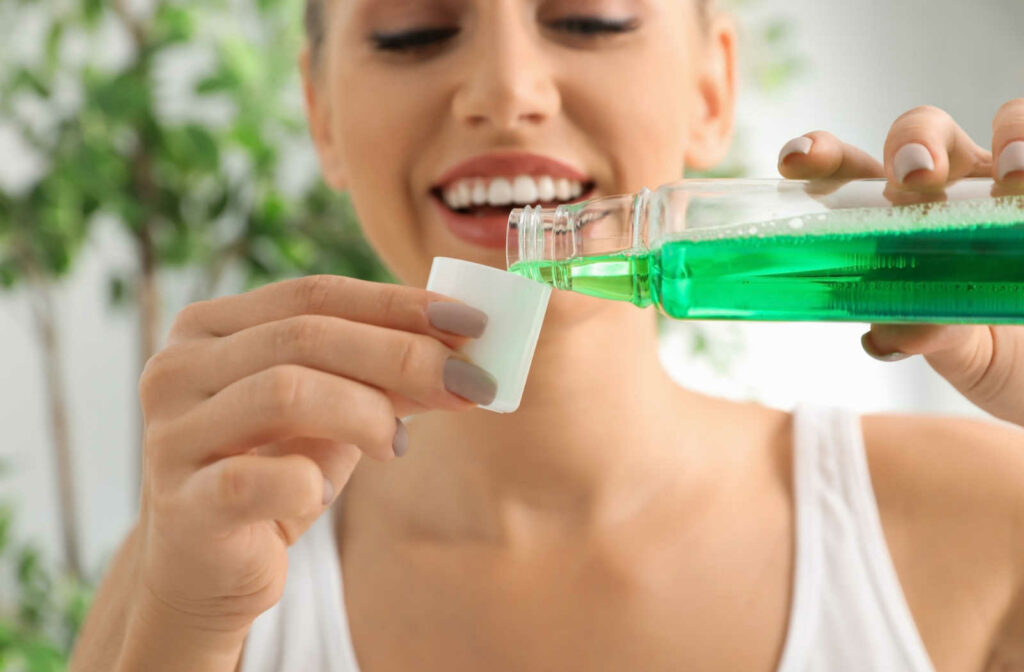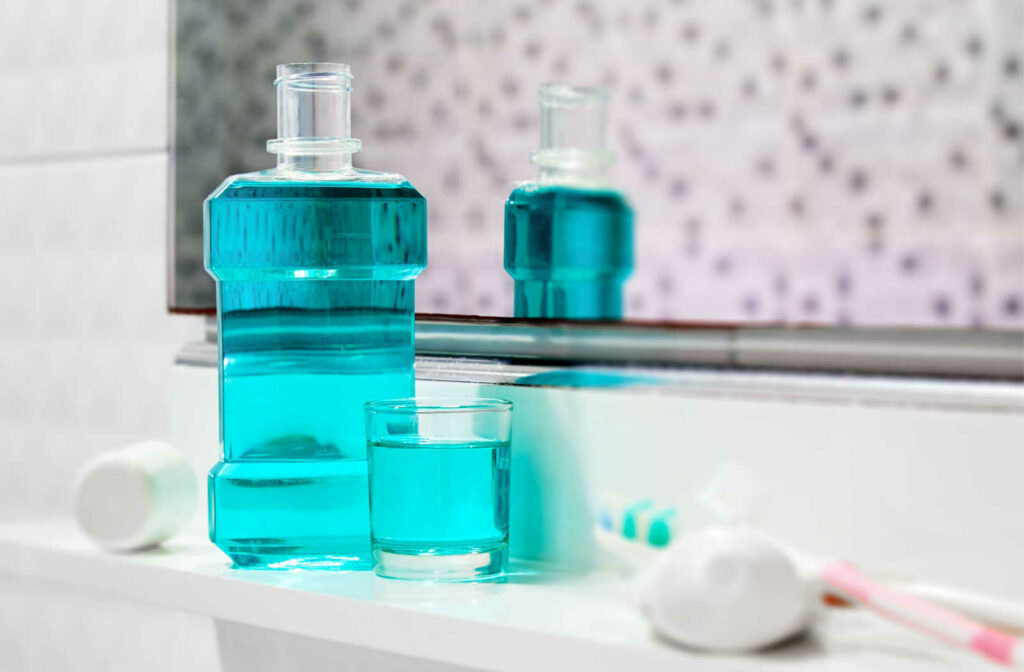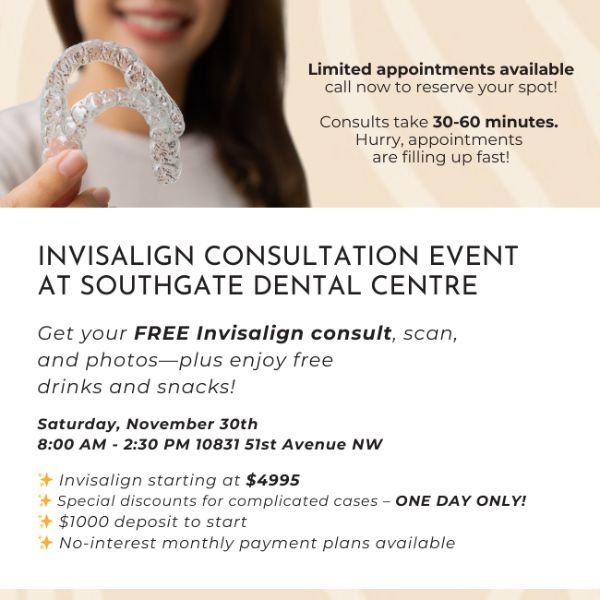Halitosis, or bad breath, is a common occurrence amongst Canadians. Many assume that rinsing with mouthwash morning and night is the best solution. And while that can certainly help alleviate unpleasant smells in the short-term, it’s not typically the best or most surefire solution.
But if mouthwash isn’t the solution, then what is? First, flossing is a great tool to prevent or minimize bad breath caused by bacteria in your mouth. Picking the proper toothbrush that cleans your mouth’s nooks and crannies is also a great start.
There are certainly some good reasons to use mouthwash regularly.
Reasons to Use Mouthwash
The benefit you get from mouthwash primarily depends on the type you choose. For example, there are antibacterial or fluoridated mouthwashes that will do different things for your teeth and mouth.
Here are a few things that mouthwash may help with:
Helps With Bad Breath
The first, and most obvious benefit most people relate to mouthwash use, is its help with bad breath. If the bad breath is primarily caused by bacterial growth, the mouthwash will definitely help. However, if the halitosis is due to underlying causes unrelated to bacteria, the mouthwash will only be a temporary mask.
Reduces Dry Mouth
Mouthwash formulas containing xylitol can help treat the symptoms of dry mouth, which can lead to bad breath and other problems, such as an increased risk for gum disease and tooth decay. The xylitol in the formula promotes increased saliva production in your mouth.
Helps Prevent Tooth Decay and Cavities
If you are using a mouthwash containing fluoride, then it will help prevent or halt tooth decay. The fluoride will build up the mineral and remineralize your teeth which can be a great way to ward off cavities.
Helps Prevent Gum Disease
Using an antibacterial mouthwash can also help control plaque build-up if used in conjunction with proper teeth brushing techniques. This stops the plaque from releasing its harmful acids in your mouth, which can lead to gingivitis—the first step in gum disease.

Proper Use of Mouthwash
If you’ve used different mouthwashes before, you’ll notice that some of the directions between them vary slightly. Always follow the directions from the manufacturer and your dentist.
But here are a few relatively universal steps to give you an idea of the proper use of mouthwash:
- Brush and floss first: Plaque, bits of food, and other things you don’t want in your mouth can be stubborn. In most cases, simply rinsing with mouthwash isn’t enough to adequately clean your mouth. So, give your teeth a good brushing and flossing first.
- Please wait 10–20 minutes after brushing your teeth before using mouthwash, as the fluoride in the toothpaste is still doing its job.
- Use the proper amount of mouthwash: Some mouthwashes include a small plastic cup. Otherwise, you’ll just use a small cup. It’s important that you use only as much wash as the label instructs. Typically, this is between 3 and 5 tablespoons.
- Rinse and Swish: Avoid swallowing the mouthwash once it’s in your mouth. Swish it around so it penetrates all areas of your mouth. Additionally, it’s a good idea to gargle with it. Usually, you want to swish and rinse for around 30 seconds, then spit the liquid out.
Alternatives to Mouthwash
Suppose you don’t have mouthwash handy, or you’d simply prefer the more natural route. In that case, a few home remedies may offer similar results as a mouthwash.
Things you can try at home include:
- Baking soda and salt rinse: These ingredients offer some natural antiseptic properties that can help fight infection and help control bacteria growth in your mouth.
- Cinnamon and clove rinse: This combination of natural ingredients will help control bacteria growth and freshen your breath.
- Peppermint and tea tree oil rinse: Another great mixture that will leave your breath fresh and your mouth clean.
- Hydrogen peroxide rinse: When done properly, hydrogen peroxide is a great way to improve oral health, including whitening. However, it must be done properly because it can cause issues if ingested or used too much.
Mouthwash Isn’t a Replacement for Brushing and Flossing
One important thing to remember is that using mouthwash (even multiple times a day) is not a replacement for brushing and flossing. Of the three, mouthwash is the one thing you can drop from your routine without negative consequences.
That being said, when done correctly, rinsing your mouth with a fluoride or antibacterial mouthwash is a great addition to your daily oral hygiene routine.
Find Out Which Mouthwash Is Right for You
Are you always getting cavities, or is your mouth dry? Adding mouthwash to your routine may be the solution. However, not all mouthwashes are equal or do the same thing. If you’re wondering which the best option for you is, give us a call at Southgate Dental Centre.
Our professional staff are happy to answer your questions. Also, seeing a dentist may be a good idea before using mouthwash. While performing an exam and cleaning, the dentist can determine if any underlying issues need to be addressed.



